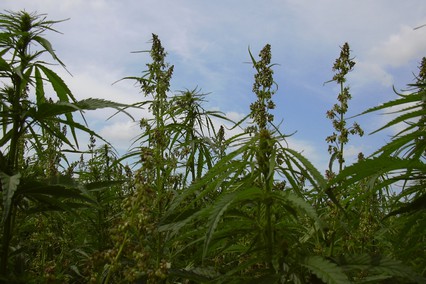Description
Agronomists, sometimes known as crop scientists, specialize in producing and improving food crops while managing weeds and pests. Their jobs require experimentation and critical thinking. These agricultural scientists have a positive career outlook due to the continuous need for the food crops they help develop. Agronomists offer an advisory service and specialist support to Farmers. They advise and work with Farmers to make sure crop production on arable farms is performing well.
Tasks:
1. Experimenting and planning studies to improve crop yields
2. Studying a farm's crop production in order to discern the best ways to plant, harvest, and cultivate the plants, regardless of the climate
3. Identifying and providing solutions to overcome technical problems such as diseases in crops
4. Collecting and analysing information
5. Facilitating farmer discussion groups and knowledge transfer
6. Advising on crop protection products and the correct nutrients
7. Advising on farm building construction for crop storage
8. Monitoring the financial impact the changes they propose
9. Liaising with businesses which produce seeds or chemicals for agriculture and horticulture to find out about their products
10. Writing reports
11. Keeping up-to-date on developments in the industry
Key skills for:
United Kingdom: £20,000 - £26,500 per year
United States of America: $49,564 per year
Australia: AU$ 55,283 per year
Qualifications and training required:
There are opportunities for Agronomists throughout the country, especially for those with a flair for selling.
Many crop protection companies will offer development schemes for graduates or Assistant Agronomists to be trained and gain experience in crop consultancy, analysing farm accounts, technical specialism’s, sales and marketing.
Experience of farm work or horticulture is normally required along with a sound knowledge of farm management. Most Agronomists will hold a degree in agriculture or a related science. Degree subjects include, biological science, crop science, and horticulture and soil science.
Tasks:
1. Experimenting and planning studies to improve crop yields
2. Studying a farm's crop production in order to discern the best ways to plant, harvest, and cultivate the plants, regardless of the climate
3. Identifying and providing solutions to overcome technical problems such as diseases in crops
4. Collecting and analysing information
5. Facilitating farmer discussion groups and knowledge transfer
6. Advising on crop protection products and the correct nutrients
7. Advising on farm building construction for crop storage
8. Monitoring the financial impact the changes they propose
9. Liaising with businesses which produce seeds or chemicals for agriculture and horticulture to find out about their products
10. Writing reports
11. Keeping up-to-date on developments in the industry
Key skills for:
- Accurate, with good attention to detail
- Able to manage budgets and develop marketing and sales plans
- Able to provide financial forecasts
- Able to analyse information and present it in an easily understood format
- Able to monitor and control the use of resources
- Computer literate and be able to maintain accurate records
- Able to get on with different people and have excellent communication skills
- Skilled in sales techniques and marketing their service or product to Farmers
United Kingdom: £20,000 - £26,500 per year
United States of America: $49,564 per year
Australia: AU$ 55,283 per year
Qualifications and training required:
There are opportunities for Agronomists throughout the country, especially for those with a flair for selling.
Many crop protection companies will offer development schemes for graduates or Assistant Agronomists to be trained and gain experience in crop consultancy, analysing farm accounts, technical specialism’s, sales and marketing.
Experience of farm work or horticulture is normally required along with a sound knowledge of farm management. Most Agronomists will hold a degree in agriculture or a related science. Degree subjects include, biological science, crop science, and horticulture and soil science.
Companies in profession
Best students in profession
Professions you might be interested in
Virtual internship
Company recommended study programs
Sprintlab
1 recommendations
Vide un ūdenssaimniecība - profesionālās augstākās izglītības bakalaura studiju programma
LBTU - Latvijas Biozinātņu un tehnoloģiju universitāte
- 4 company recommendations
Alpu terases
2 recommendations
Zemes ierīcība un mērniecība - profesionālās augstākās izglītības bakalaura studiju programma
LBTU - Latvijas Biozinātņu un tehnoloģiju universitāte
- 9 company recommendations
AINAVU BŪVTEHNIĶIS
Bulduru Dārzkopības vidusskola
- 7 company recommendations
"Silava" Latvijas Valsts mežzinātnes institūts
1 recommendations
Lauksaimniecības inženierzinātne - akadēmiskās izglītības bakalaura studiju programma
LBTU - Latvijas Biozinātņu un tehnoloģiju universitāte
- 6 company recommendations
Censuva
1 recommendations
DĀRZKOPIS
Bulduru Dārzkopības vidusskola
- 5 company recommendations
Valsts augu aizsardzības dienests
2 recommendations
Lauksaimniecība - profesionālās augstākās izglītības bakalaura studiju programma
LBTU - Latvijas Biozinātņu un tehnoloģiju universitāte
- 12 company recommendations
BIOLOĢIJA
Daugavpils Universitāte
- 1 company recommendations
Piekalnes
1 recommendations
Lauksaimniecība - profesionālās augstākās izglītības bakalaura studiju programma
LBTU - Latvijas Biozinātņu un tehnoloģiju universitāte
- 12 company recommendations
Iecavnieks & Co
1 recommendations
Lauksaimniecības inženierzinātne - akadēmiskās izglītības bakalaura studiju programma
LBTU - Latvijas Biozinātņu un tehnoloģiju universitāte
- 6 company recommendations
Svaigs un veselīgs
1 recommendations
In our portal we are using cookies. Using the portal, you agree to the use of cookies. You can find out more!
Accept


